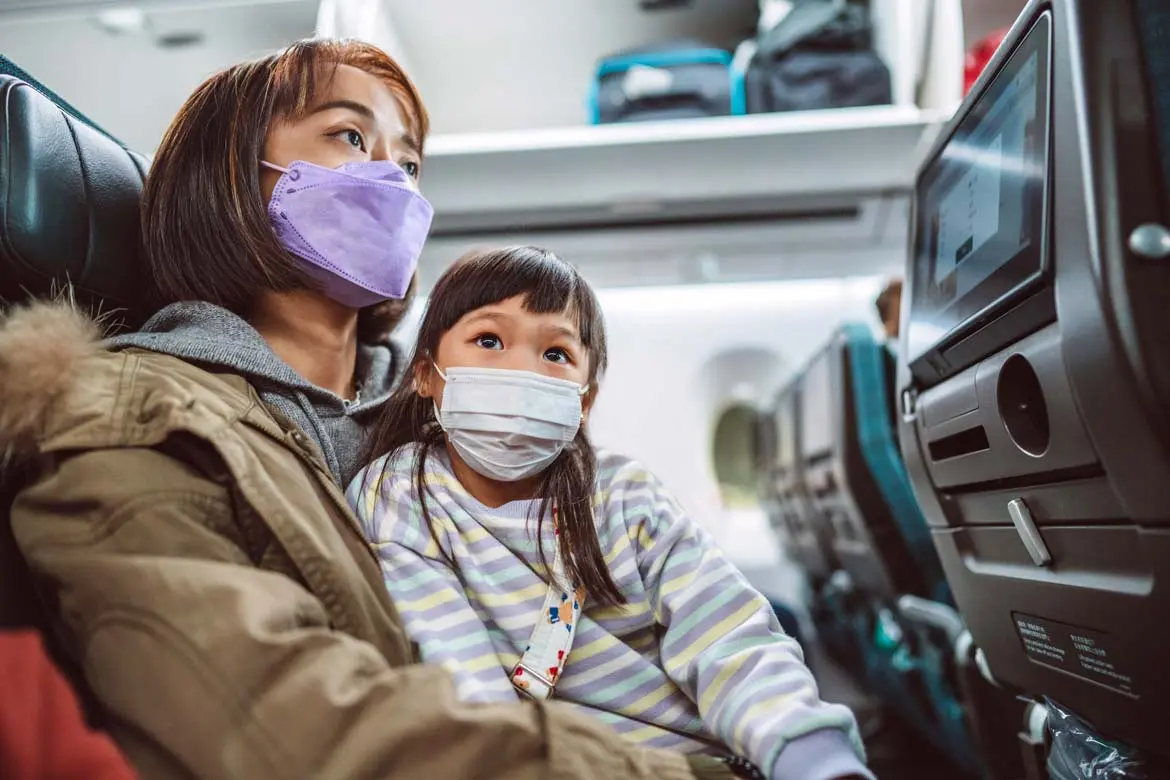Joy Marie Lim
Medical Advisor


Source: Getty Images and Shutterstock
Medical Advisor
For many of us, it's been two years since we have last travelled, whether it's to satiate our wanderlust, or to physically meet our loved ones overseas. Travelling amidst a pandemic is more complicated, with constant uncertainties and ever-changing requirements. However, as countries gradually open up and relax their pandemic-related restrictions, travelling is relatively more doable now – as long as you take note of some key points.
Read on as we address some frequently-asked questions.
As we live in a new 'normal', travelling is different too. Here are some tips that can smoothen your planning process.
While many countries have relaxed their rules, the situation is constantly evolving, so do check the latest updates on the destination country's official website to see if you are all good to go. Such rule changes can include:
Additionally, the vaccination or testing requirements can vary from one country to another and any required documentation may need to be presented in the home language. So do ensure you have met all the entry requirements before you travel.
Pandemic travelling requires more administrative work than what we're used to. Before COVID-19, we just needed to ensure our passports and visas were valid. Today, countries require more documentation and certifications, so do set aside some time to ensure that you have everything ready for a smooth trip ahead!
These may include:
This ensures that you have a safety net should you catch the virus before or during your travels. Insurers will typically cover travel interruptions due to unforeseen circumstances (such as catching COVID-19) and medical expenses while overseas, up to an agreed limit. Do note that coverage does vary from insurer to insurer, so it's best to carry out your own comparisons prior to buying. Do take the time to read the fine print to make sure that what is important for your situation is covered.
Some countries will require you to get tested every few days.
Some countries require self-testing. This will also come in handy should you experience any COVID-19 symptoms during your trip.
If you are feeling ill overseas, getting to a pharmacy at the last minute or in the middle of the night may be challenging. Prepare your own medical kit containing a thermometer and basic over-the-counter medicines such as paracetamol, tablets for runny nose, and lozenges for sore throat to ease the symptoms.
Just like Singapore's TraceTogether, you may need to have the equivalent overseas app before being allowed entry into places such as malls and restaurants overseas.
Now that you're abroad with all the paperwork done, it's time to enjoy yourself – safely! The virus may be lurking everywhere, and there's no guaranteed way to avoid it. However, with the proper habits, you can greatly reduce your chances of catching it.
You can find out more about keeping yourself safe from COVID-19 here: https://www.gov.sg/features/how-tos
If you test positive before travelling, you will not be allowed on the plane if your destination country requires you to present a COVID-negative certificate. You will have to make arrangements to cancel or postpone your flight, until you are well enough to test negative for the virus.
You can do a self-test using your ART kit to confirm your positive status. Every country has different protocols, so it is advisable to check an official source, or make a call to the hotel front desk for your next steps. At this point, depending on how far you are in your vacation, you may need to extend your stay in the country. You will also need to contact your insurance provider – they will be the key point of contact for questions related to insurance claims, whether it's the additional costs incurred from an extended stay, or treatment.
The guidelines vary for travellers with different vaccination status. For example, travellers who are fully vaccinated will now be able to enter Singapore quarantine-free while travellers who are not considered fully vaccinated against COVID-19 must serve a 7-day Stay-Home Notice (SHN) at their declared Stay-Home Notice (SHN) accommodation. As the guidelines do change from time to time, it is best to always refer to the official websites for the latest update.
For many countries, testing is still a key defence factor – you are likely to have to complete a pre-departure test before your travels, whether it be ART or PCR. You can book your pre-departure ART or PCR test and have it done at any of the Parkway Shenton clinics near you.
Do note that due to the evolving nature of rules and restrictions around the world, it is recommended that you check the official websites locally and in your destination country before making your travel arrangements.
Safe travels ahead!
Staying well starts with access to the right care. Whether it’s home health test kits, fitness training, or vaccinations, preventive care helps you stay ahead of potential health issues.
Enjoy member rates on a wide range of medical services and wellness offerings at Parkway Shenton, Parkway MediCentre, our sister hospitals within the IHH Healthcare Singapore network, and partner brands.
Simply download the MyHealth360 app and flash your Parkway Plus card at participating clinics and partners.